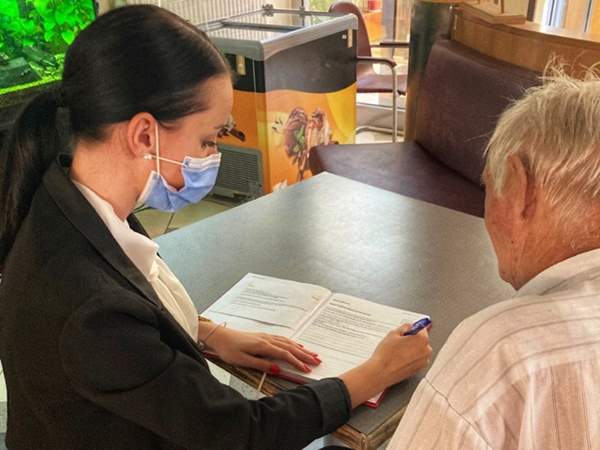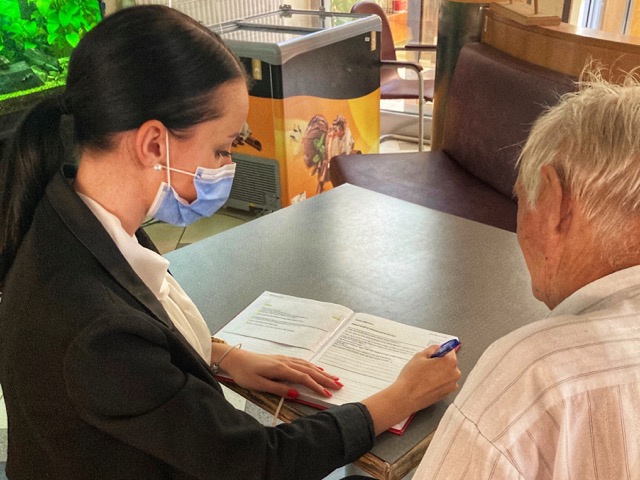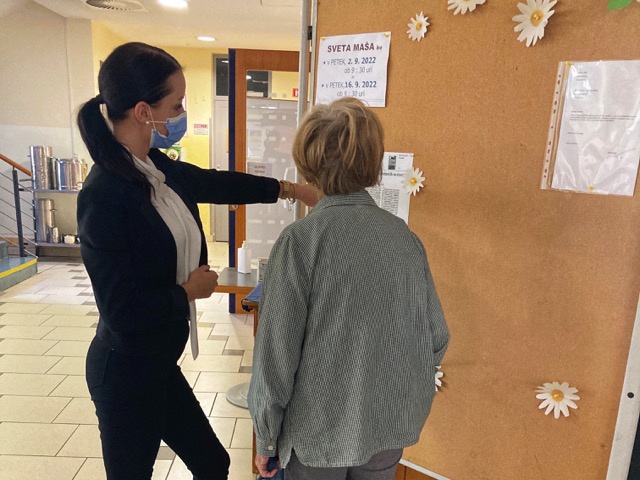
Social gerontologists are vital in overcoming the loneliness of the elderly

Alma Mater student Urška Kunčič works at the Retirement home Ljutomer. She says that the work of a social gerontologist was significant during the coronavirus. She demonstrated this in her final assignment, where she focused on the problems of the elderly in nursing homes during the coronavirus epidemic.
Covid-19 has brought home some hard lessons for older adults. Mainly because of separation from those closest to you, prohibition of visits, loneliness, fear, various protocols and measures by wearing masks, protective equipment, and isolation. "The elderly population was among the most vulnerable groups because they were exposed to infection and at the same time, in most cases, to a more severe course of the disease. During the home's closure, the residents of the Retirement home Ljutomer experienced fear and loneliness due to the measures taken to contain the epidemic. The virus has had an unpredictable effect on social contacts, especially on the social contacts of older adults. During this time, the work of a social gerontologist greatly contributed to the functioning itself," explains the student.

During the epidemic, social gerontologists played an essential role in the homes for the elderly in individual counseling conversations with the elderly residents of the home. All in the hope that the loneliness of the residents of the home was significantly reduced. "Digital technology was a great help in overcoming the loneliness of the elderly at home. We enabled contacts with those closest to us through digital networks and helped the residents to overcome the consequences of social isolation in the light of quality coexistence in the home," Urška Kunčič points out. In the final assignment, she analyzed the entire situation in detail, looked for solutions to overcome the consequences of social isolation, and helped draw up a crisis plan to curb a possible recurrence of the epidemic in the future.
